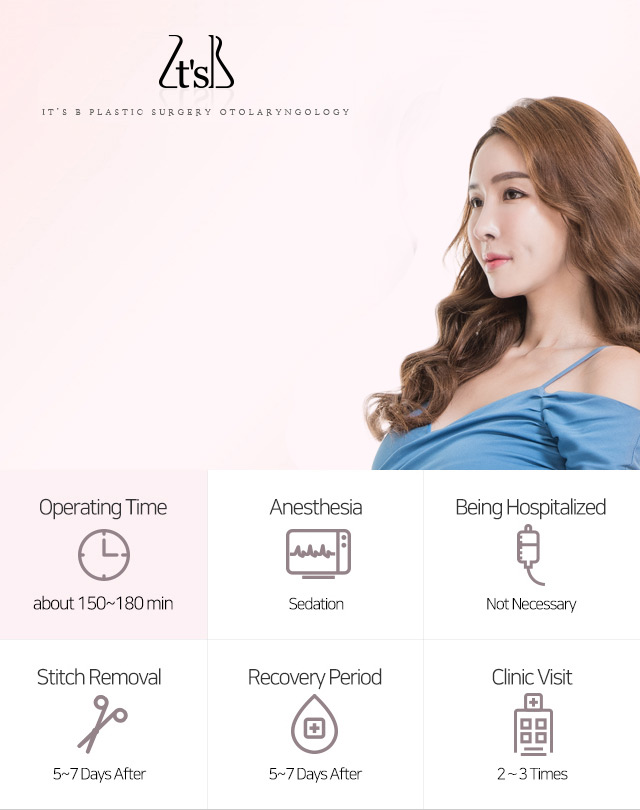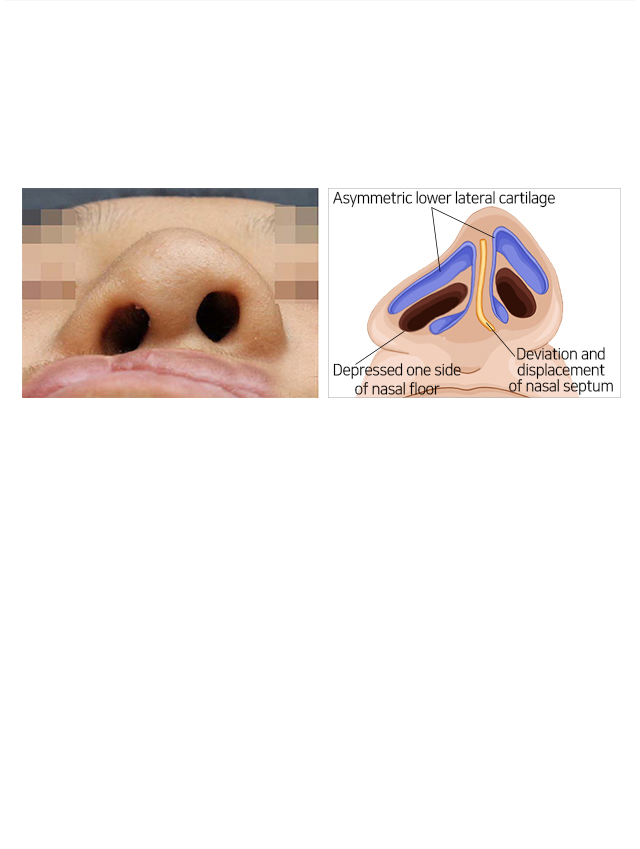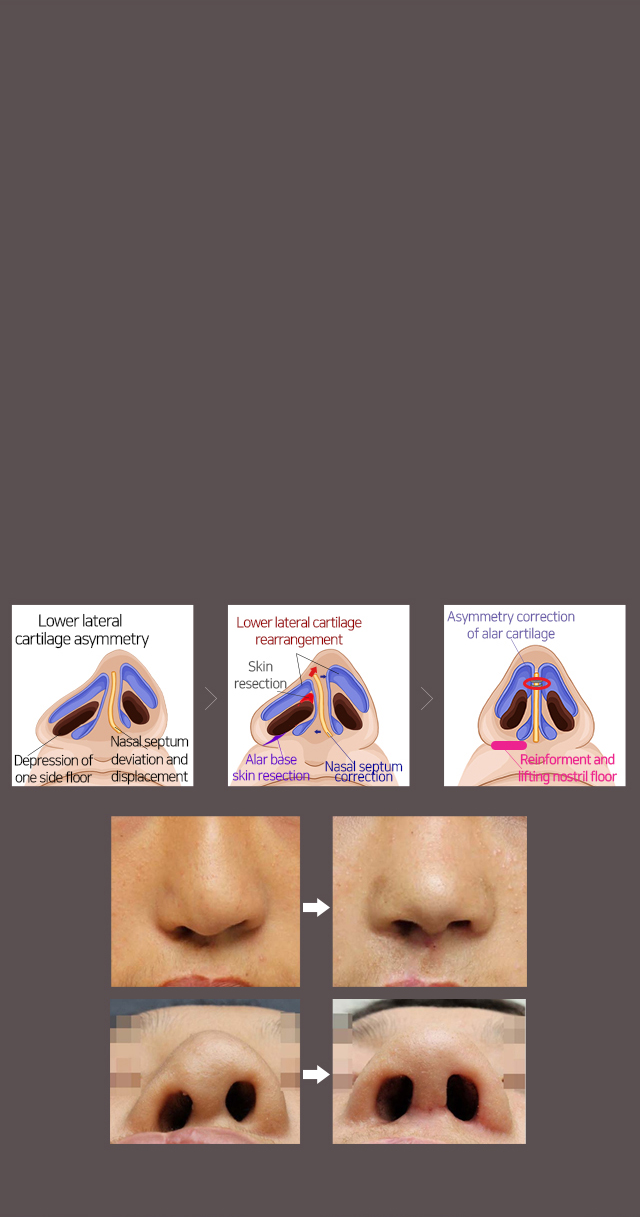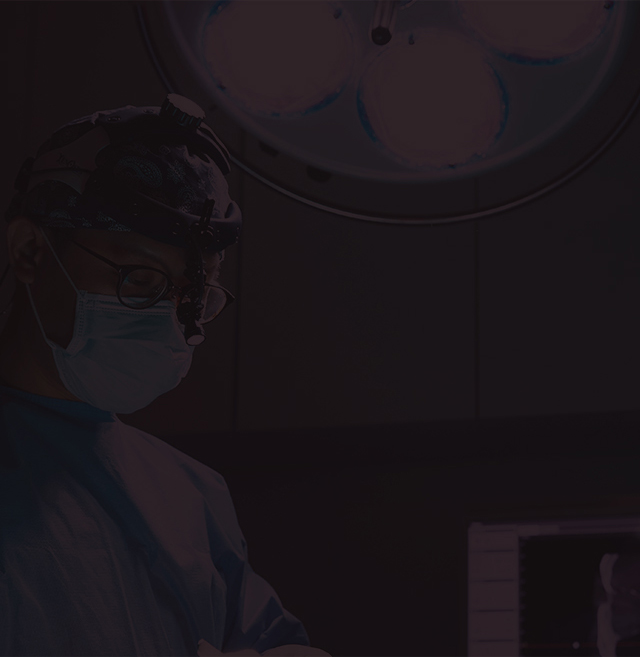
Cleft Lip Rhinoplasty
Get away from the discomfort and burden caused by congenital deformities!
Cleft lip rhinoplasty presents an extreme challenge to the surgeon, so only surgeons who have rich experiences can provide satisfactory operation results.

What is Cleft Lip Rhinoplasty?
Cleft lip is a type of birth defects. Surgery can fix splits in the upper lip at infancy. Cleft lip often causes nasal deformation. One side of the upper jawbone does not grow or agglutinate, resulting in a defect in the bony structure of nasal floor. Thus, the nose at the side with cleft lip will be flattened and look wide.
The reason that cleft lip rhinoplasties are complex is due to severe nostrils and floor asymmetry. Because the asymmetry starts from the nasal base floor and the positions of the two nostrils & ala are different, correction is difficult. Therefore, cleft lip rhinoplasty must be performed by a surgeon who has rich experiences to ensure a satisfied result.

Surgical Method of It’s B’s
Cleft Lip Rhinoplasty
01. Correct the crooked nasal septal cartilage and hold it to the middle. 02. Creating a strong cartilage support including straight strut. 03. Lift the lower lateral cartilages of the depressed side, and symmetrize the lower lateral cartilages at the two sides. 04. Perform WINGS alar rim lowering at the normal side. 05. Resect the blunt skin of the soft triangle and resect the alar base the at the side of depressed and wide nostril, and then narrow wide nasal floor. 06. Reinforce and lift the nostril floor with cleft lip.

It’s B’s Cleft Lip Rhinoplasty,
1. Early correction is possible.
2. Using autologous rib cartilage.
3. Performing special technique for uneven nostrils correction.
1) A special Asymmetrical Nostril Correction that applies WINGS alar rim lowering technique
2) A surgery that corrects and reinforces not only the nose, but also the upper jawbone abnormality, the fundamental cause of cleft lip
4. Reliable treatment after operation
- Nostril asymmetry may reoccur along with time. Continued treatment after operation is needed to prevent the reoccurrence of uneven nostrils.




 KOR
KOR ENG
ENG

